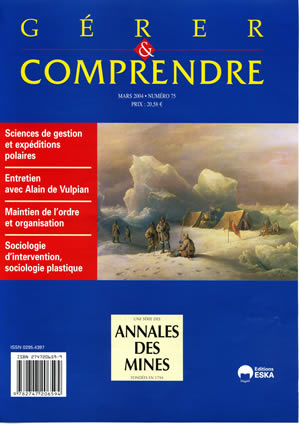|
 N° 75 - Mars 2004 N° 75 - Mars 2004
HARMONISATION COMPTABLE INTERNATIONALE DE LA RESISTIBLE ASCENSION DE l'IASC/IASB
par Bernard COLASSE
CREFIGE - Université Paris-Dauphine
Organisation internationale de droit privé qui tire sa légitimité normative du monde anglo-saxon et produit des informations à destination des investisseurs, l’IASC/IASB ne dispose d’aucun pouvoir coercitif pour faire appliquer les normes comptables qu’il émet. Il lui faut donc constamment prouver sa légitimité et rechercher l’appui d’organisations plus puissantes, telles l’IFAC , l’IOSCO ou encore l’Union Européenne, elle-même divisée entre le modèle actionnarial anglo-saxon et le modèle partenarial continental. Le rejet récent des normes 32 et 39 apparaît alors comme une contestation du référentiel anglo-saxon par les tenants du modèle continental.
 Télécharger gratuitement l'article Télécharger gratuitement l'article
 Retour au sommaire Retour au sommaire
 N° 75 - March 2004 N° 75 - March 2004
The international standardization of bookkeeping practices: On the resistible rise of IASC/IASB
Bernard Colasse
The International Accounting Standards Board and International Association for Statistical Computing produce information for investors. These private international organizations draw legitimacy for establishing bookkeeping standards from the English-speaking world but have no power for seeing to it that the standards they approve are put into practice. They have to constantly prove their legitimacy and seek support from more powerful organizations, such as the International Institute for Facilitation and Consensus (IFAC), the International Organization of Securities Commissions (IOSCO) or the European Union. In matters of accountancy, the EU is divided between a shareholders’ model as in English-speaking lands and a partnership model as on the European mainland. The recent rejection of standards 32 and 39 suggests that the supporters of the continental model are impugning the reference to an English-speaking one.
 Retour au sommaire Retour au sommaire
|



